China to South Korea Freight Forwarder
Ο απόλυτος οδηγός
Shipping from China to South Korea: The Ultimate Guide 2024 September (Updated)
Πίνακας περιεχομένων
Trade between China and South Korea has flourished over the years, with China being South Korea’s largest trading partner. In 2022, bilateral trade between the two countries exceeded $360 billion, with key goods including electronics, machinery, automobiles, and textiles. As businesses in South Korea continue to source goods from China, understanding the complexities of the shipping process is crucial for importers to streamline logistics, reduce costs, and avoid potential pitfalls.
This guide provides a comprehensive breakdown for South Korean businesses importing from China. From freight options and tax implications to customs compliance and transit times, this guide will help you navigate the logistics of shipping from China to South Korea, ensuring timely delivery and cost savings.
September 2024 Shipping Update: From China to South Korea
Part 1: Shipping Price Comparison
Shipping between China and South Korea offers multiple freight options, including sea, air, and express services. Below is a comparison of shipping costs across different modes, based on recent data from the past three months.
| Λειτουργία αποστολής | Price Range (USD) | Characteristics |
|---|---|---|
| FCL (20-foot container) | $400 – $600 | Ideal for bulk goods. Short distance between China and South Korea reduces shipping time and costs. |
| FCL (40-foot container) | $600 – $900 | Suitable for large orders. Most cost-efficient for high-volume shipments. |
| LCL (Λιγότερο από φορτίο εμπορευματοκιβωτίων) | $45 – $60 per CBM | Cost-effective for smaller shipments. Additional handling can increase transit times. |
| Air Freight (1000 kgs+) to ICN | $1.00 – $1.50 per kg | Fast but more expensive. Best for urgent or high-value goods. |
| Express Courier (DHL, UPS) | $4.50 – $6.00 per kg | Fastest option. Ideal for small, time-sensitive shipments. |
Part 2: Detailed Analysis of Recent Shipping Trends
Price Trends: Sea freight between China and South Korea has remained stable in recent months, with slight fluctuations due to fuel price changes and port demand. The proximity of the two countries allows for short transit times, typically around 2-3 days by sea. Air freight, while more expensive, offers near-immediate delivery (1-2 days), making it a preferred option for electronics and high-value goods.
Χρόνοι διέλευσης: Sea freight is the most cost-effective shipping method, offering transit times of 2-3 days for FCL and 3-5 days for LCL shipments. Air freight offers transit times of just 1-2 days, while express courier services like DHL or FedEx can deliver within 1-3 days.
Factors Affecting Shipping Times: Factors such as customs processing, port congestion, and weather conditions can affect shipping times. However, due to the short distance between China and South Korea, delays are rare. Efficient customs processes and strong port infrastructure in both countries contribute to reliable shipping schedules.
2024 Outlook: As trade between China and South Korea continues to grow, shipping demand is expected to remain steady throughout 2024. Importers should plan for potential price increases during peak seasons (e.g., before Lunar New Year) but overall, shipping costs are forecasted to remain stable.
Recommendations for South Korean Importers: Given the short transit times, businesses should prioritize sea freight for large-volume shipments and consider air freight for smaller, time-sensitive shipments. Consolidating smaller shipments via LCL can help reduce costs while maintaining efficiency.
Freight Shipping Cost from China to South Korea for September 2024
Επισκόπηση του κόστους ανά τρόπο αποστολής
| Λειτουργία αποστολής | Shipping Cost (USD) | Characteristics |
|---|---|---|
| FCL (Full Container Load) 20-foot container | $400 – $600 | Most cost-effective for bulk goods. Short distance ensures fast delivery. |
| FCL (Full Container Load) 40-foot container | $600 – $900 | Best for large shipments. Lower per-unit cost compared to a 20-foot container. |
| LCL (Λιγότερο από φορτίο εμπορευματοκιβωτίων) | $45 – $60 per CBM | Suitable for smaller shipments. Consolidation increases transit time slightly. |
| Air Freight (1000kgs+) to ICN | $1.00 – $1.50 per kg | Fast but more expensive. Ideal for high-value, time-sensitive goods. |
| Express Courier (DHL, UPS) | $4.50 – $6.00 per kg | Fastest option, typically used for small parcels or urgent deliveries. |
Understanding Import Tax, Duties, and VAT Costs
When importing goods from China to South Korea, it is essential to consider import duties, VAT, and other taxes. Below is an overview of the applicable tax rates for various product categories imported into South Korea.
| Product | Custom Duties (%) | VAT Cost (%) |
|---|---|---|
| Electronics (e.g., mobile phones) | 0% | 10% |
| Textiles and apparel | 8% | 10% |
| Παιχνίδια | 5% | 10% |
| Έπιπλα | 6% | 10% |
| Plastic products | 6.5% | 10% |
| Μηχανήματα | 2% | 10% |
| Footwear | 10% | 10% |
| Vehicles (including parts) | 8% | 10% |
| Optical instruments | 3.7% | 10% |
| Watches and clocks | 4.5% | 10% |
| Bicycles | 14% | 10% |
| Glassware | 12% | 10% |
| Musical instruments | 3.5% | 10% |
Πλοήγηση στη νομική συμμόρφωση στη διεθνή ναυτιλία
Shipping goods from China to South Korea requires compliance with South Korean import regulations. Below are the key considerations:
HS Codes: It is important to correctly classify goods using the Harmonized System (HS) codes to ensure proper customs duties and VAT rates are applied.
Product Safety and Labeling: Many products, such as electronics, toys, and textiles, must comply with South Korean safety standards and labeling regulations. Products may require certification to meet local safety standards, such as the Korea Certification (KC) mark for electronics.
Restricted Goods: Some products are restricted or require special licenses for import, such as pharmaceuticals, chemicals, and food products. Importers should consult with customs authorities to verify if their goods require additional documentation.
Customs Documentation: Ensure accurate and complete customs documentation, including commercial invoices, packing lists, bills of lading, and certificates of origin, to avoid delays at customs.
Shipping from China to South Korea Transit Time
Transit times between China and South Korea are generally shorter than for other international routes, owing to the proximity of the two countries. Below is a comparison of typical transit times for various shipping modes.
Σύγκριση των χρόνων διαμετακόμισης μεταξύ των τρόπων μεταφοράς
| Λειτουργία αποστολής | Transit Time (Days) |
|---|---|
| Sea Freight (FCL) | 2-3 days |
| Sea Freight (LCL) | 3-5 days |
| Αεροπορικές μεταφορές | 1-2 days |
| Express Courier | 1-3 days |
Παράγοντες που επηρεάζουν τους χρόνους διέλευσης και στρατηγικές μετριασμού
Συμφόρηση λιμένων: Both China and South Korea have highly efficient port systems, but occasional congestion, particularly during peak seasons, can cause delays. To mitigate this, importers should plan shipments in advance and avoid high-demand periods such as before major holidays.
Τελωνειακός εκτελωνισμός: Customs delays can occur if documentation is incomplete or incorrect. Working with experienced freight forwarders who are familiar with South Korean customs regulations can help minimize delays.
Καιρικές συνθήκες: Severe weather, particularly typhoons in the Yellow Sea, can delay sea freight. Businesses shipping time-sensitive goods should consider using air freight during peak storm seasons to avoid disruptions.
Booking in Advance: During peak seasons, space on vessels or aircraft can become limited. Booking shipments in advance ensures that your goods will be prioritized, reducing the risk of delays.
Door-to-door shipping from China to South Korea
Door-to-door shipping services provide businesses with a simplified logistics solution. In this model, a freight forwarder manages the entire shipping process from pickup in China to delivery in South Korea.
Πλεονεκτήματα των υπηρεσιών πόρτα-προς-πόρτα
End-to-End Solution: Freight forwarders manage the entire logistics process, from factory pickup in China to final delivery in South Korea, reducing the administrative burden for importers.
Αποδοτικότητα κόστους: By consolidating services, door-to-door shipping can reduce overall logistics costs, particularly for businesses that would otherwise need to coordinate multiple service providers.
Simplified Customs Clearance: Freight forwarders offering door-to-door services often include customs clearance in their package, reducing the likelihood of delays.
Advantages of Door-to-Door Services (continued)
Simplified Customs Clearance: Freight forwarders offering door-to-door services often include customs clearance in their package, reducing the likelihood of delays due to missing or incorrect documentation. This is especially beneficial for businesses that are new to importing from China.
Real-Time Tracking: Door-to-door services often include real-time tracking, allowing businesses to monitor the shipment from its point of origin in China to its final delivery location in South Korea. This improves transparency and ensures peace of mind for importers.
Reduced Risk of Damage: Door-to-door shipping minimizes handling by third parties, which can reduce the risk of damage to goods in transit. This is especially important for fragile or high-value items.
How to Choose the Right Door-to-Door Service
Reputation and Experience: When selecting a door-to-door service provider, it’s important to choose one with a proven track record of shipping between China and South Korea. Look for customer reviews and case studies that highlight the provider’s experience with similar shipments.
Comprehensive Coverage: Ensure that the service covers all aspects of the shipping process, including pickup, warehousing, customs clearance, and delivery. A comprehensive service will reduce the need for additional coordination with other logistics providers.
Transparent Pricing: Look for a provider that offers clear and upfront pricing with no hidden fees. This is especially important in door-to-door services, as unexpected costs for customs, taxes, or handling can quickly add up.
Tracking Capabilities: Choose a provider that offers advanced tracking tools so you can monitor the status of your shipment at every stage of its journey. Real-time tracking allows you to anticipate potential delays and address issues proactively.
Customer Support: Strong customer support is essential when issues arise during transit. Make sure the provider offers dedicated customer service teams who can quickly resolve any problems with customs clearance, delivery, or shipment handling.
Sea Freight from China to South Korea (September 2024)
Due to the proximity between China and South Korea, sea freight is one of the most cost-effective and reliable shipping methods. Below is a detailed breakdown of sea freight costs and transit times for full container load (FCL) and less-than-container load (LCL) shipments.
| Λειτουργία αποστολής | Unit | Price Range (USD) | Transit Time (Days) |
|---|---|---|---|
| FCL (20-foot container) | Per container | $400 – $600 | 2-3 days |
| FCL (40-foot container) | Per container | $600 – $900 | 2-3 days |
| LCL (Λιγότερο από φορτίο εμπορευματοκιβωτίων) | Per cubic meter (CBM) | $45 – $60 | 3-5 days |
Οφέλη της ναυτιλίας LCL και FCL
LCL: Less-than-Container Load (LCL) shipping is ideal for businesses that don’t need to fill an entire container. It allows them to share container space with other shippers, reducing costs. However, LCL involves longer transit times due to the need for consolidation and deconsolidation at ports.
FCL: Full Container Load (FCL) is more cost-effective for businesses shipping large volumes of goods. Since the entire container is dedicated to one shipper, the transit time is typically faster, and there is less risk of damage from handling.
Αποδοτικότητα κόστους: FCL shipping is more cost-efficient on a per-unit basis, especially for large orders. Businesses with smaller shipments can still benefit from LCL, but it comes with slightly higher costs per unit.
Lower Handling Risk: FCL shipments involve less handling as they don’t need to be consolidated with other shipments. This reduces the risk of damage during transit.
Short Transit Time: Thanks to the proximity between China and South Korea, FCL and LCL shipments enjoy short transit times, making sea freight a highly efficient option for both large and small shipments.
Επιλογή ενός θαλάσσιου διαμεταφορέα και κορυφαίες διαδρομές ναυτιλίας
Selecting the right sea freight forwarder is essential to ensure a smooth shipping process. Here are some factors to consider when choosing a forwarder, along with key routes for sea freight between China and South Korea.
Key Considerations When Selecting a Sea Freight Forwarder
Strong Network: Choose a forwarder with a well-established network in both China and South Korea. They should have strong relationships with shipping lines, port authorities, and customs officials to facilitate smooth shipping operations.
Experience in China-South Korea Trade: A forwarder with extensive experience in handling shipments between China and South Korea will be familiar with customs procedures, shipping routes, and regulatory requirements, ensuring faster clearance and transit.
Competitive Pricing: Ensure your freight forwarder can offer competitive rates by leveraging their contracts with shipping lines. Transparent pricing without hidden fees is crucial for cost-effective shipping.
Tracking and Communication: A good freight forwarder will offer real-time tracking and proactive communication to keep you informed about the status of your shipment. This is essential for anticipating delays or issues during transit.
Customs Clearance Expertise: The forwarder should have a deep understanding of both Chinese and South Korean customs procedures to help you avoid delays, fines, or shipment rejections.
Air Freight from China to South Korea (September 2024)
For businesses needing fast delivery, air freight is the fastest shipping option available between China and South Korea. Below is a breakdown of air freight costs and transit times for September 2024.
| Λειτουργία αποστολής | Unit | Price Range (USD) | Transit Time (Days) |
|---|---|---|---|
| Air Freight (1000kgs+) | Per kg | $1.00 – $1.50 | 1-2 days |
Πλεονεκτήματα και εκτιμήσεις της αεροπορικής μεταφοράς εμπορευμάτων
Speed: Air freight is the fastest shipping method, with transit times ranging from 1 to 2 days. This makes it ideal for time-sensitive shipments or high-value goods where speed is critical.
Αξιοπιστία: Airlines typically operate on tight schedules, making air freight a highly reliable option compared to sea freight, which may be impacted by weather conditions or port congestion.
Security: Air freight is often considered more secure than sea freight due to stricter security protocols at airports. This makes it a preferred option for valuable or sensitive goods.
Higher Costs: The main disadvantage of air freight is its higher cost compared to sea freight. However, for businesses shipping high-value goods or products with short lifecycles, the speed and reliability often justify the cost.
Capacity Limitations: Air freight is less suitable for large or heavy shipments, as aircraft have weight and volume restrictions. It’s best for smaller, high-value goods.
Τελωνειακός εκτελωνισμός: Air freight shipments often benefit from expedited customs clearance, which reduces the time spent at the destination port.
Επιλογή του σωστού μεταφορέα αεροπορικών μεταφορών
Air Cargo Expertise: Select a forwarder with extensive experience in air cargo logistics. They should understand the specific requirements of air freight, including customs clearance, security procedures, and documentation.
Carrier Relationships: Ensure your forwarder has strong partnerships with major airlines. This ensures they can secure space on flights, even during peak times, and negotiate competitive rates for you.
Tracking and Communication: Choose a forwarder that offers advanced tracking tools so you can monitor your shipment in real-time. Good communication is essential to address any issues that may arise during transit.
Τελωνειακή εμπειρογνωμοσύνη: Your forwarder should have a deep understanding of South Korean customs regulations to ensure that your shipment is cleared quickly and efficiently.
Flexibility in Service: A good air freight forwarder should offer flexible service options, including express services for urgent shipments and deferred services for less time-sensitive goods.
Express Shipping from China to South Korea
For businesses needing fast delivery of small parcels or urgent goods, express shipping is the best option. Below is a breakdown of express shipping costs and transit times from China to South Korea.
| Shipping Method | Unit (kg) | Price Range (USD) | Transit Time (Days) |
|---|---|---|---|
| Express Courier (DHL, UPS, FedEx) | Per kg | $4.50 – $6.00 | 1-3 days |
Οφέλη και περιπτώσεις χρήσης για την ταχεία αποστολή
Urgent Deliveries: Express shipping is ideal for time-sensitive shipments that need to arrive in South Korea within 1-3 days. This is often used for sending samples, prototypes, or replacement parts.
Small Parcels: Express services are best suited for small, lightweight parcels. This makes them a great option for e-commerce businesses that need to ship products directly to customers.
Real-Time Tracking: Express services typically come with advanced tracking capabilities, allowing businesses to monitor their shipments throughout the entire journey.
Τελωνειακός εκτελωνισμός: Major express shipping companies such as DHL, UPS, and FedEx handle customs clearance as part of their service, simplifying the process for the shipper.
Door-to-Door Service: Express shipping is a door-to-door service, eliminating the need for additional coordination once the goods arrive in South Korea.
Understanding Express Shipping Rates and Transit Times, Including DDP Options
Express shipping rates are based on the weight, size, and destination of the shipment. For businesses shipping goods from China to South Korea, many express companies offer DDP (Delivered Duty Paid) services. This means that all customs duties and taxes are included in the shipping cost, providing a hassle-free experience for buyers. Transit times for express shipments typically range from 1 to 3 days, making it ideal for urgent deliveries or high-value items.
Key Ports in China and South Korea for Shipping
Below is a summary of the key ports involved in trade between China and South Korea, along with their strategic advantages.
| Country | Port | Πλεονεκτήματα | Strategic Importance |
|---|---|---|---|
| China | Σαγκάη | Largest port in the world. Handles a significant portion of South Korea-bound cargo. | Essential for FCL and LCL shipments to South Korea. |
| China | Ningbo-Zhoushan | Major port for manufacturing hubs in southern China. | Key for handling electronics and industrial goods. |
| China | Qingdao | Proximity to South Korea. Offers fast transit times. | Ideal for short sea shipping routes to South Korea. |
| South Korea | Busan | Largest port in South Korea. Major entry point for Chinese imports. | Critical for handling containerized goods from China. |
| South Korea | Incheon | Close to Seoul. Ideal for fast transit to South Korea’s capital region. | Key for time-sensitive shipments. |
Major Routes from China to South Korea
The primary sea route from China to South Korea passes through the Yellow Sea, connecting major Chinese ports such as Shanghai, Qingdao, and Ningbo to South Korean ports like Busan and Incheon. The close proximity of the two countries allows for short transit times, typically ranging from 2 to 5 days depending on the shipping method.
Air freight routes typically depart from major Chinese airports such as Shanghai Pudong, Beijing Capital International, and Shenzhen Bao’an, arriving at South Korean airports like Incheon International and Gimhae International.
Freight Forwarders from China to South Korea
Freight forwarders play an essential role in managing logistics, customs clearance, and transportation. The right freight forwarder can simplify the shipping process and ensure timely delivery.
Ο ρόλος των διαμεταφορέων στη διαδικασία αποστολής
Freight forwarders act as intermediaries between the shipper and the carrier, managing all aspects of the logistics process. They handle documentation, arrange transportation, and ensure that goods comply with customs regulations in both China and South Korea.
Επιλογή του σωστού μεταφορέα για τις ανάγκες σας
Global Network: Choose a freight forwarder with a strong network in both China and South Korea. This ensures smooth coordination between the origin and destination points.
Experience in China-South Korea Trade: A forwarder with experience in shipping between China and South Korea will be familiar with customs procedures, shipping routes, and any regulatory challenges.
Transparent Pricing: Ensure the forwarder offers clear and upfront pricing without hidden fees. A detailed quote should include all potential costs, including customs duties, handling fees, and transportation charges.
Flexibility in Service: Look for a forwarder that can offer flexible services based on your specific needs, whether it’s LCL, FCL, air freight, or express shipping.
Τελωνειακή εμπειρογνωμοσύνη: A forwarder with deep knowledge of customs regulations in both China and South Korea will help you avoid delays, fines, and shipment rejections.
Real-Time Tracking: Choose a forwarder that offers real-time tracking tools so you can monitor the status of your shipment at every stage of its journey.
How to Ship from China to South Korea: A Step-by-Step Guide
Prepare Your Shipment:
- Τεκμηρίωση: Ensure that all export and import documents are complete, including the bill of lading, commercial invoice, packing list, and certificate of origin.
- Συσκευασία: Use durable materials to properly package your goods to prevent damage during transit, especially for fragile or high-value items.
- Επισήμανση: Ensure all packages are clearly labeled with product details, destination, and handling instructions.
Book Freight:
- Choose the appropriate shipping mode based on your budget and timeline. For large shipments, FCL is recommended, while LCL is ideal for smaller shipments. Air freight or express shipping is suitable for time-sensitive goods.
- Contact a reputable freight forwarder to manage the logistics of your shipment.
Τελωνειακός εκτελωνισμός:
- Work with your freight forwarder to prepare all customs documentation required for both China and South Korea.
- Pay any applicable customs duties, VAT, and taxes to ensure smooth importation into South Korea.
Track Your Shipment:
- Use tracking tools provided by your freight forwarder or carrier to monitor the progress of your shipment from origin to destination.
Receive Goods:
- Upon arrival in South Korea, ensure that the goods are properly handled and transported to your warehouse or final destination.
Πλοήγηση στα τελωνεία και παρακολούθηση της αποστολής σας
Required Documents: Ensure all required documents are prepared, including the bill of lading, commercial invoice, packing list, and certificate of origin. Incorrect documentation can result in delays at customs.
Customs Compliance: Work with a forwarder familiar with South Korean customs regulations to avoid fines or shipment delays.
Tracking Tools: Utilize tracking tools provided by your forwarder to monitor your shipment and address potential issues as they arise.
Alibaba και ναυτιλία: Alibaba: Εξορθολογισμός της διαδικασίας
Alibaba is a key platform for South Korean businesses sourcing products from China. The platform offers integrated shipping solutions that simplify the logistics process. By working with verified suppliers and logistics partners, South Korean importers can minimize risks and optimize shipping efficiency.
Αξιοποίηση της Alibaba για αποδοτική αποστολή LCL, FCL και Door-to-Door
Alibaba provides tools for importers to book LCL, FCL, and door-to-door shipping services directly through the platform. By partnering with trusted logistics providers, Alibaba helps ensure that shipments are handled professionally and delivered on time.
Συμβουλές για τη μείωση του κόστους και την ενίσχυση της αποδοτικότητας μέσω του Alibaba
Bulk Ordering: Alibaba suppliers often offer discounts for bulk orders, reducing the overall per-unit cost of shipping.
Consolidation: Consolidating shipments with other buyers can reduce the cost of LCL shipping, making it more efficient for smaller orders.
Customizable Shipping Options: Alibaba allows importers to customize their shipping methods, whether it’s express, air freight, or sea freight, depending on the urgency and volume of the shipment.
Supplier Reviews: Before placing an order, check supplier reviews and ratings on Alibaba to ensure timely delivery and reliability.
Restricted & Prohibited Items for Shipping from China to South Korea
Certain items are restricted or prohibited from being shipped between China and South Korea due to safety, environmental, or legal concerns.
| Product Category | Restricted/Prohibited |
|---|---|
| Firearms | Prohibited |
| Hazardous Chemicals | Restricted |
| Food and Beverage Products | Restricted |
| Animal Products | Prohibited |
| Perishables | Restricted |
| Pharmaceuticals | Restricted |
| Plants and Seeds | Restricted |
| Pornographic Materials | Prohibited |
| Counterfeit Goods | Prohibited |
| Cultural Artifacts | Restricted |
| Live Animals | Prohibited |
| Tobacco Products | Restricted |
| Explosives | Prohibited |
| Certain Electronic Devices | Restricted |
| Alcohol | Restricted |
FAQ: Shipping from China to South Korea
How long does shipping from China to South Korea take?
- Sea freight typically takes 2-5 days, depending on whether it’s FCL or LCL. Air freight takes 1-2 days, and express shipping takes 1-3 days.
What are the main shipping options from China to South Korea?
- The main options are sea freight (FCL, LCL), air freight, and express courier services.
How do I choose the right freight forwarder for my shipping needs?
- Look for a forwarder with experience in China-South Korea trade, transparent pricing, strong networks, and excellent customer service.
What documents are required for shipping goods from China to South Korea?
- The key documents include the bill of lading, commercial invoice, packing list, and certificate of origin.
What is the importance of packaging and labeling when shipping from China to South Korea?
- Proper packaging prevents damage during transit, while accurate labeling ensures smooth customs clearance and handling.
How does customs clearance work when importing from China to South Korea?
- Customs clearance involves reviewing all documents, calculating duties, and ensuring compliance with South Korean import regulations.
What are the advantages of using door-to-door shipping services?
- Door-to-door services provide convenience, cost-efficiency, tracking, and simplified customs processes.
How can I track my shipment from China to South Korea?
- Use the tracking tools provided by your freight forwarder or carrier for real-time updates on your shipment’s progress.
Conclusion:
Shipping from China to South Korea offers a range of cost-effective and reliable options, whether through sea freight, air freight, or express courier services. By following this comprehensive guide, importers can navigate the complexities of the shipping process, from selecting the right shipping mode to understanding customs regulations and tracking their shipments.
Send Your Enquiry Now
Our Services
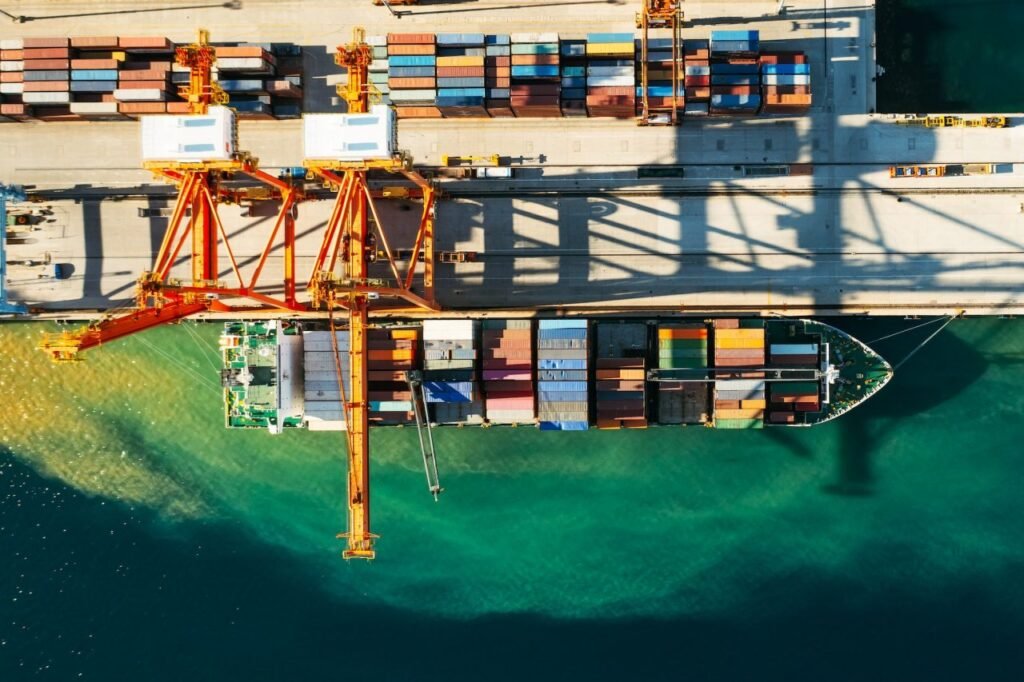
Sea Freight Shipping from China to South Korea
Enjoy cost savings with our high-capacity sea freight options, ideal for large shipments without the rush.
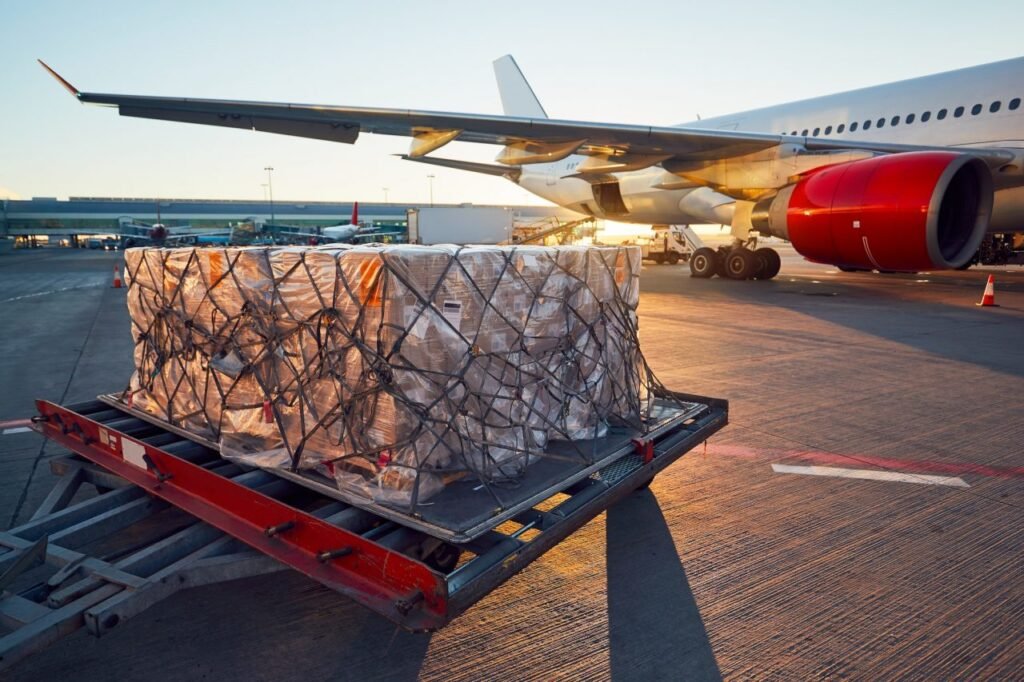
Air Freight Shipping from China to South Korea
Expedite your urgent shipments with our air freight services, ensuring your business stays on schedule.

Door to Door Shipping from China to South Korea
Experience hassle-free shipping with our door-to-door service, covering all logistics from pickup to delivery.
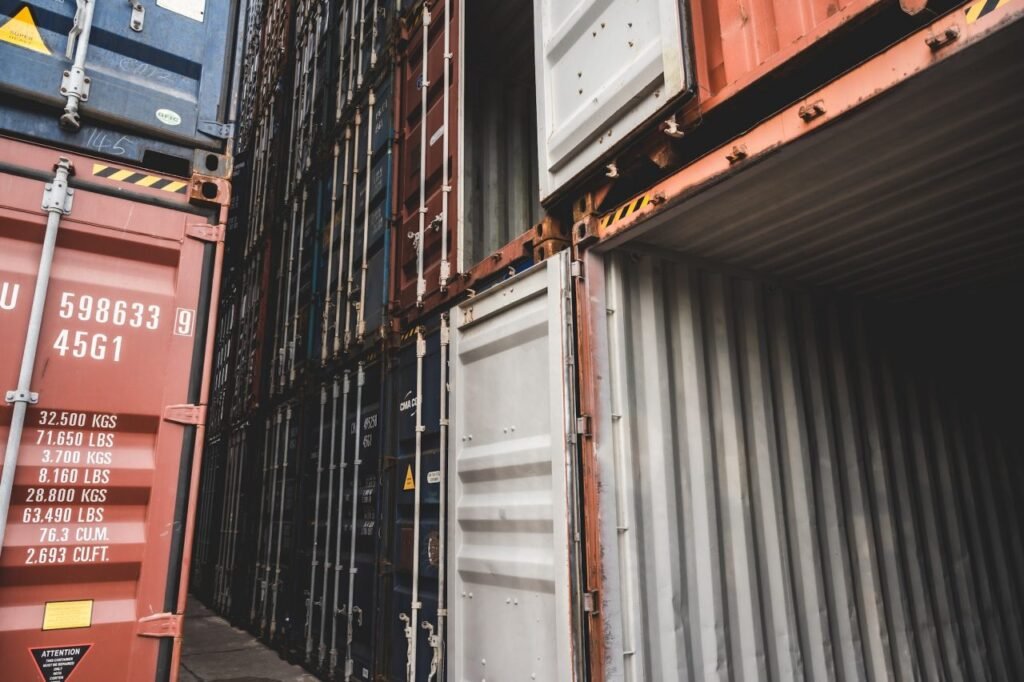
Cheapest Shipping From China to South Korea
Maximize your budget with our affordable shipping solutions, designed to deliver cost-effective and reliable transport.
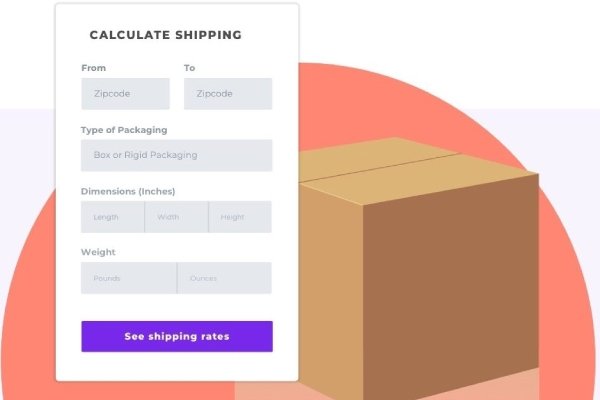
How long/much Shipping from China to South Korea
Plan effectively with our clear and upfront information on timelines and costs, empowering your business decision-making.
FCL Shipping From China to South Korea
Mbmlog’s FCL Shipping service can secure your large shipments with Full Container Load (FCL) shipping, ensuring your cargo travels together without disruptions, perfect for bulk goods needing robust protection.
LCL Shipping From China to South Korea
Benefit from the flexibility of Less than Container Load (LCL) shipping, which allows you to send smaller shipments more frequently, helping manage inventory effectively without the need to fill a full container.
Additional services for shipping from China to South Korea
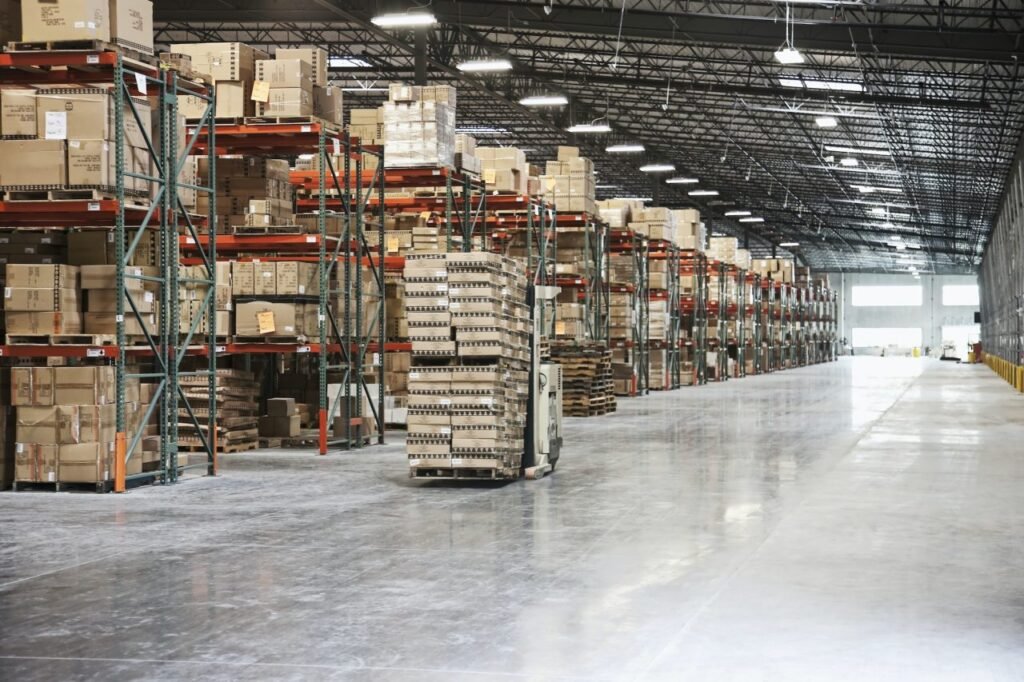
Pickup & Delivery
Streamline your logistics with our reliable pickup and delivery services, ensuring timely and efficient transportation from your doorstep directly to the destination, enhancing operational speed and reliability.
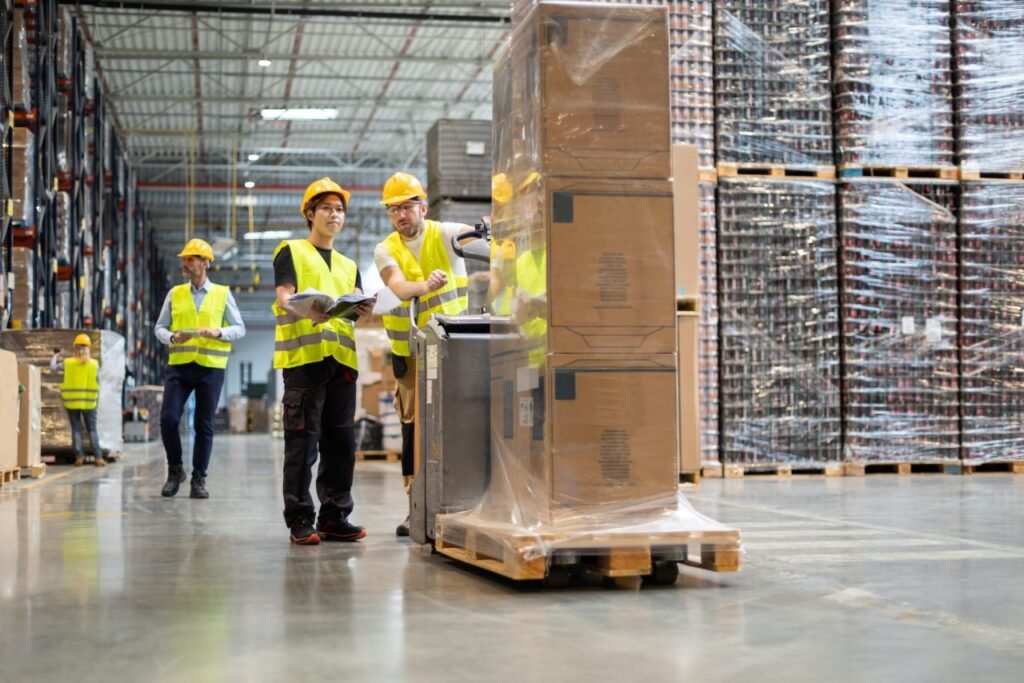
Αποθήκη
Utilize our secure and scalable warehousing solutions to safely store your goods, offering flexible storage options that adapt to your business needs, helping optimize inventory management and accessibility.
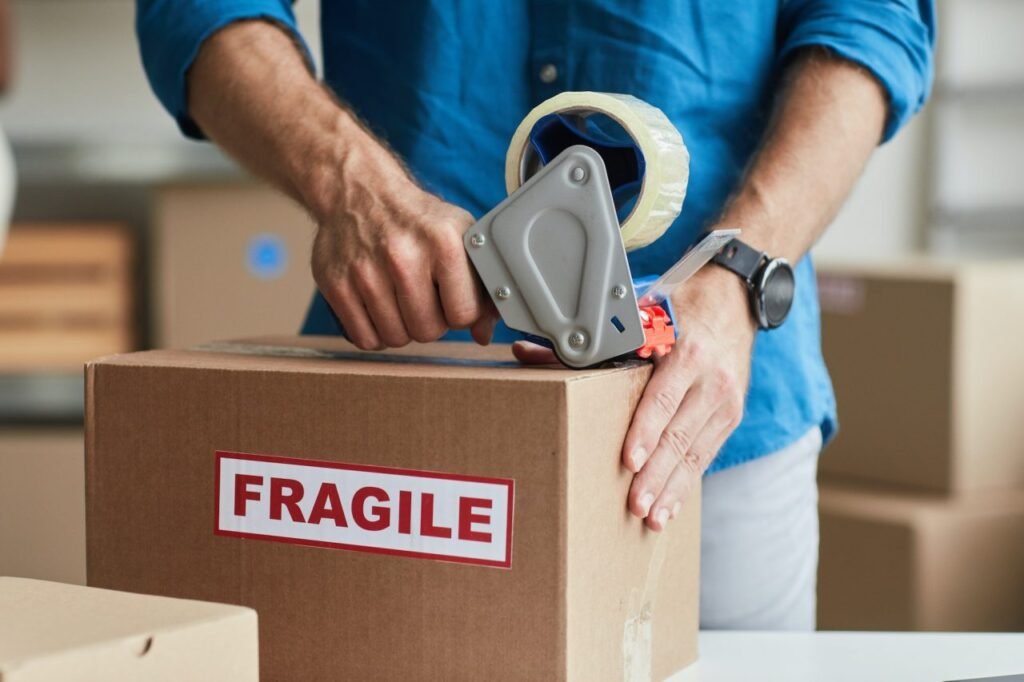
Cargo Insurance
Protect your investments with comprehensive cargo insurance, providing financial security and peace of mind against potential transit damages or losses, ensuring smooth and risk-free shipping operations.
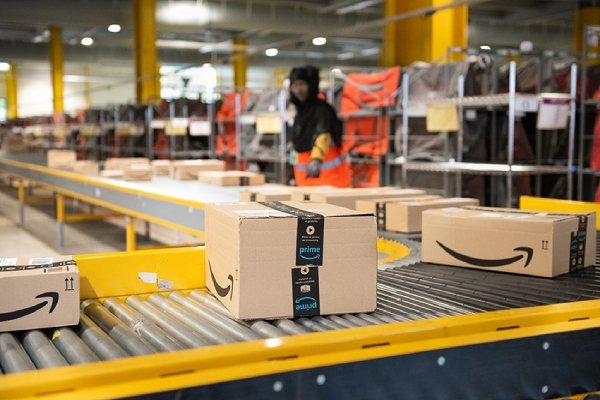
Shipping to FBA Warehouse
Facilitate seamless integration with Amazon’s network through our specialized shipping services to FBA warehouses, optimizing your fulfillment strategy, reducing handling times, and boosting your sales potential.

Custom Clearance
Expedite your international shipments with our expert custom clearance services, minimizing delays and ensuring compliance with all global trade regulations, simplifying your import/export processes.
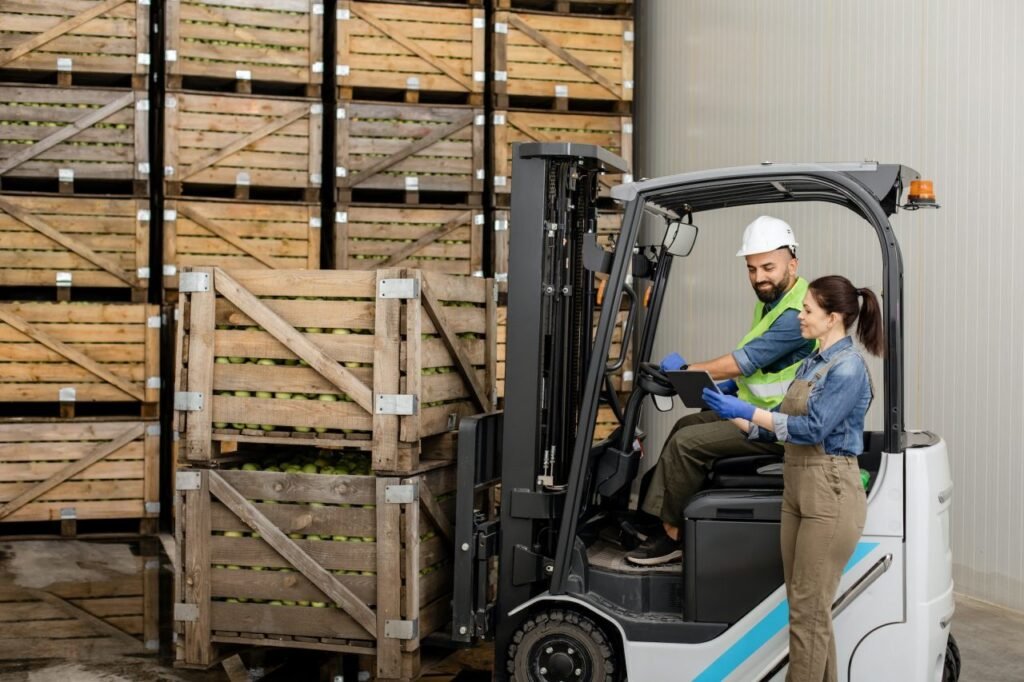
Επιθεώρηση φόρτωσης
Διασφαλίστε την ποιότητα και την κατάσταση των εμπορευμάτων σας με τις ενδελεχείς επιθεωρήσεις φόρτωσης, διασφαλίζοντας την ακεραιότητα της αποστολής και βελτιώνοντας τη συνολική ικανοποίηση των πελατών σας με την πρόληψη πιθανών προβλημάτων κατά τη μεταφορά.

Αποστολή εξπρές
Επιταχύνετε τους χρόνους παράδοσής σας με τις επιλογές ταχείας αποστολής μας, ιδανικές για επείγουσες αποστολές που απαιτούν γρήγορη και αξιόπιστη εξυπηρέτηση, βοηθώντας σας να τηρήσετε τις στενές προθεσμίες και να ξεπεράσετε τις προσδοκίες των πελατών σας.
Γιατί να επιλέξετε την MBM ?
Απολαύστε τα οφέλη της ομαλής μετακίνησης
By choosing Mbmlog, you gain competitive pricing, reliable and timely deliveries, and 24/7 expert support. Benefit from our 20 years of experience, seamless customs clearance, and free warehouse storage, ensuring your logistics are efficient, cost-effective, and worry-free.
20 χρόνια εμπειρογνωμοσύνης
Η Mbmlog προσφέρει απαράμιλλες λύσεις logistics. Η εκτεταμένη εμπειρία μας διασφαλίζει αποτελεσματικές, αξιόπιστες υπηρεσίες προσαρμοσμένες στις ποικίλες ανάγκες σας για μεταφορές.
Δωρεάν αποθήκη
Enjoy up to 30 days of free warehouse storage with mbmlog. Our secure, well-organized facilities ensure your goods are stored safely.
24hx7 Αγγλόφωνη υποστήριξη εμπειρογνωμόνων
Παρέχουμε 24 ώρες το 24ωρο, 7 ημέρες την εβδομάδα, αγγλόφωνη υποστήριξη από ειδικούς, εξασφαλίζοντας απρόσκοπτη, αποτελεσματική επικοινωνία και άμεση βοήθεια για όλες τις απαιτήσεις σας στον τομέα της εφοδιαστικής.
Cargo Insurance
Η εταιρεία μας προσφέρει ολοκληρωμένες υπηρεσίες ασφάλισης φορτίου, προστατεύοντας τις αποστολές σας με προσαρμοσμένες επιλογές ασφάλισης, εξασφαλίζοντας ασφάλεια και ηρεμία κατά τη διάρκεια της μεταφοράς.
Σχετικά με τις υπηρεσίες παρακολούθησης
Mbmlog's on tracking services provide real-time updates on your shipments, ensuring you always have accurate information about your cargo's status.
Επαγγελματική εκκαθάριση συνήθειας
Οι επαγγελματικές υπηρεσίες εκτελωνισμού μας εγγυώνται ομαλή και αποτελεσματική επεξεργασία. Η ομάδα εμπειρογνωμόνων μας χειρίζεται όλα τα έγγραφα, διασφαλίζοντας τη συμμόρφωση με τους κανονισμούς.
